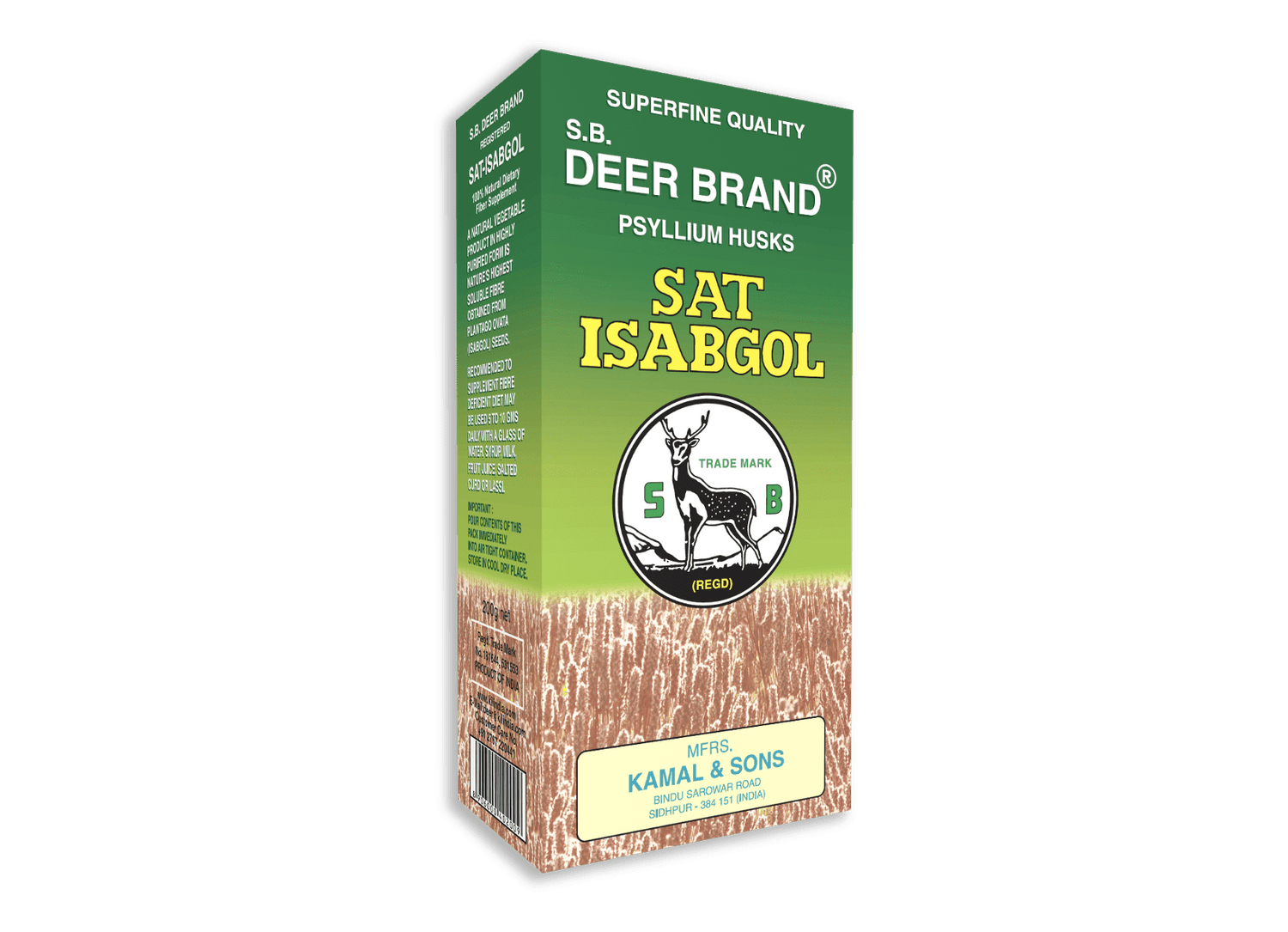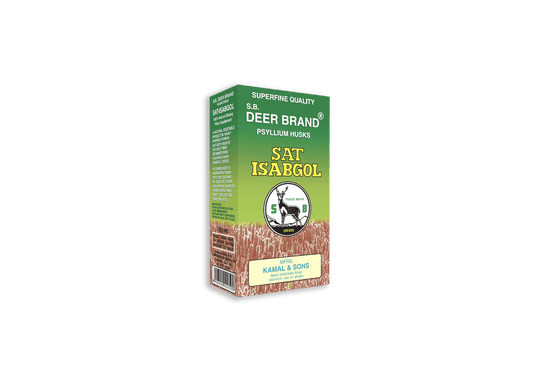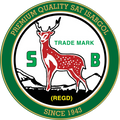Dietary Fibre
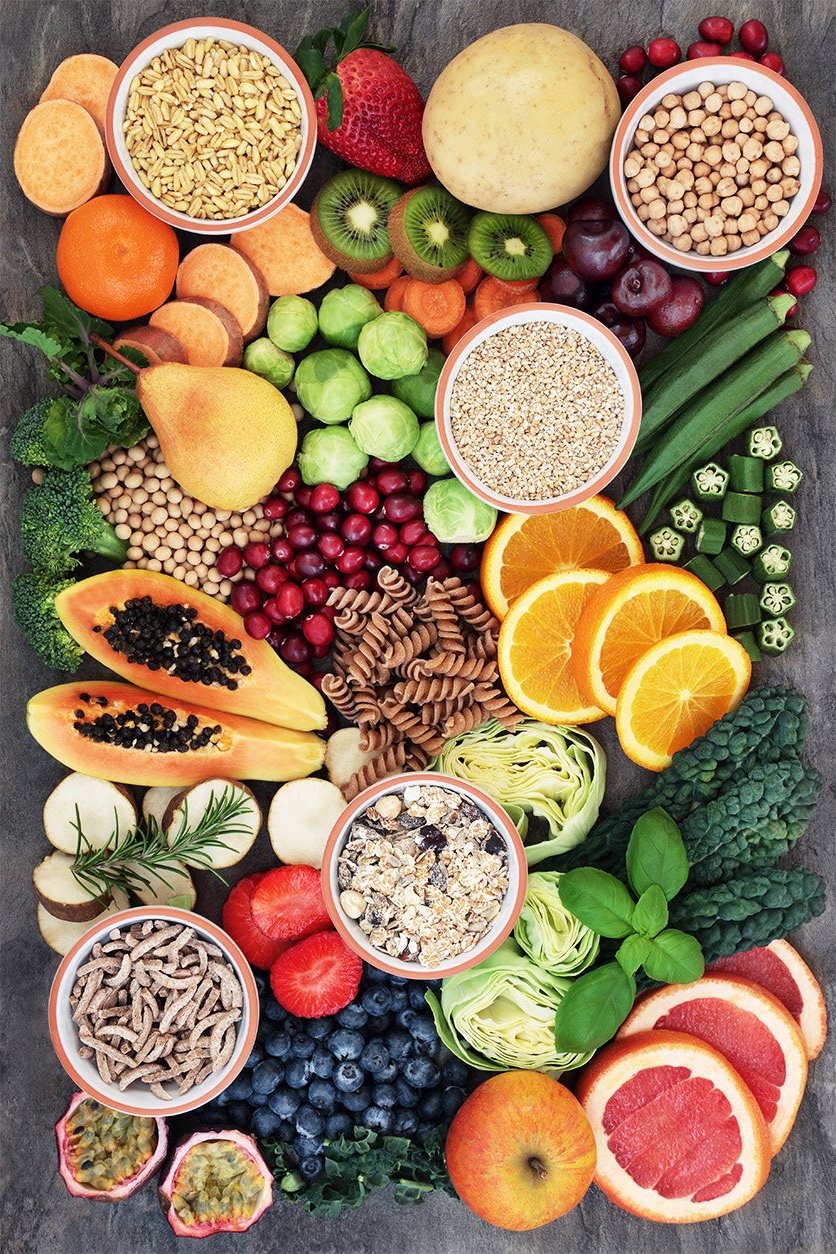
Fibre
Fiber is the elongated, threadlike structures in fruits, vegetables, and grains that cannot be digested. It has long been recognized as one of the best food ingredients for maintaining bowel regularity and preventing constipation. And because it acts to normalize bowel movements, it can also be used to treat and manage chronic diarrhoea (Murray 1996).
Consuming fiber reduces transit time and results in a more thorough evacuation of waste materials. It is thought to improve all aspects of colon function.
Know your Fibres
Hear from the Experts: BENEFITS OF FIBRE
In a meta-analysis of 67 controlled trials, it was found that some water-soluble fibers lower the total cholesterol and the bad cholesterol (LDL) without affecting the good cholesterol (HDL) (Brown 1999).
A similar double-blind study found that Psyllium (Sat Isabgol) lowered LDL cholesterol without affecting HDL cholesterol (Anderson 1999).
Water-soluble fiber may also stabilize blood sugar by slowing down the absorption of carbohydrates into the blood. Plus, it can lower blood sugar levels. Researchers have found that increasing fiber intake results in a decrease in the body’s need for insulin (Nuttall 1993).
Psyllium (Sat Isabgol) supplementation, in particular, has been shown to improve blood sugar levels in diabetics (Anderson 2000).
Fiber helps keep our bowel movements regular, by increasing stool weight and normalizing stool consistency (Marlett 2002).
It increases satiety and fullness, when part of a balanced meal. Fiber forms a gel like consistency in the digestive tract which fills us up, and also provides volume to our meals (Weisenberger 2015).
Helps with weight management. Since fiber is low in calories, it can be added to your diet, providing a greater feeling of satiety without significantly increasing your caloric intake. In addition, fiber’s ability to stabilize blood sugar may also curb the desire to snack. In other words, you may find yourself eating less. This is beneficial in weight-loss programs. (Miketinas 2019).
Supports a healthy gut microbiome. We have trillions of microorganisms living in our colon, which make up our gut microbiome. These little bugs provide us several health benefits themselves, and they feed on fiber. Adequate fiber intake gives our gut microbiome the nutrients it needs to thrive. A healthy gut microbiome supports our immune system, digestion, mood, and may benefit metabolic regulation (Myhrstad 2020).
Lowers risk of certain cancers, including colorectal cancer (Yu 2018).
Adding Fibre to your Diet
Most nutritionists recommend consuming 25 to 40 grams of fiber per day.
Once you understand what fiber is and what it does, the next step is changing your diet to make sure you increase your fiber intake.
EAT A WELL BALANCED DIET THAT INCLUDES DELICIOUS HIGH FIBRE FOODS LIKE THESE
Remember, as you increase your fibre intake, increase the amount of water you drink. To experience the benefits of fibre, adequate water/liquid is necessary.
Experience and research indicate that fibre is an indispensable part of your diet. Including adequate fiber in your diet can help prevent many of today’s prevalent health care concerns.
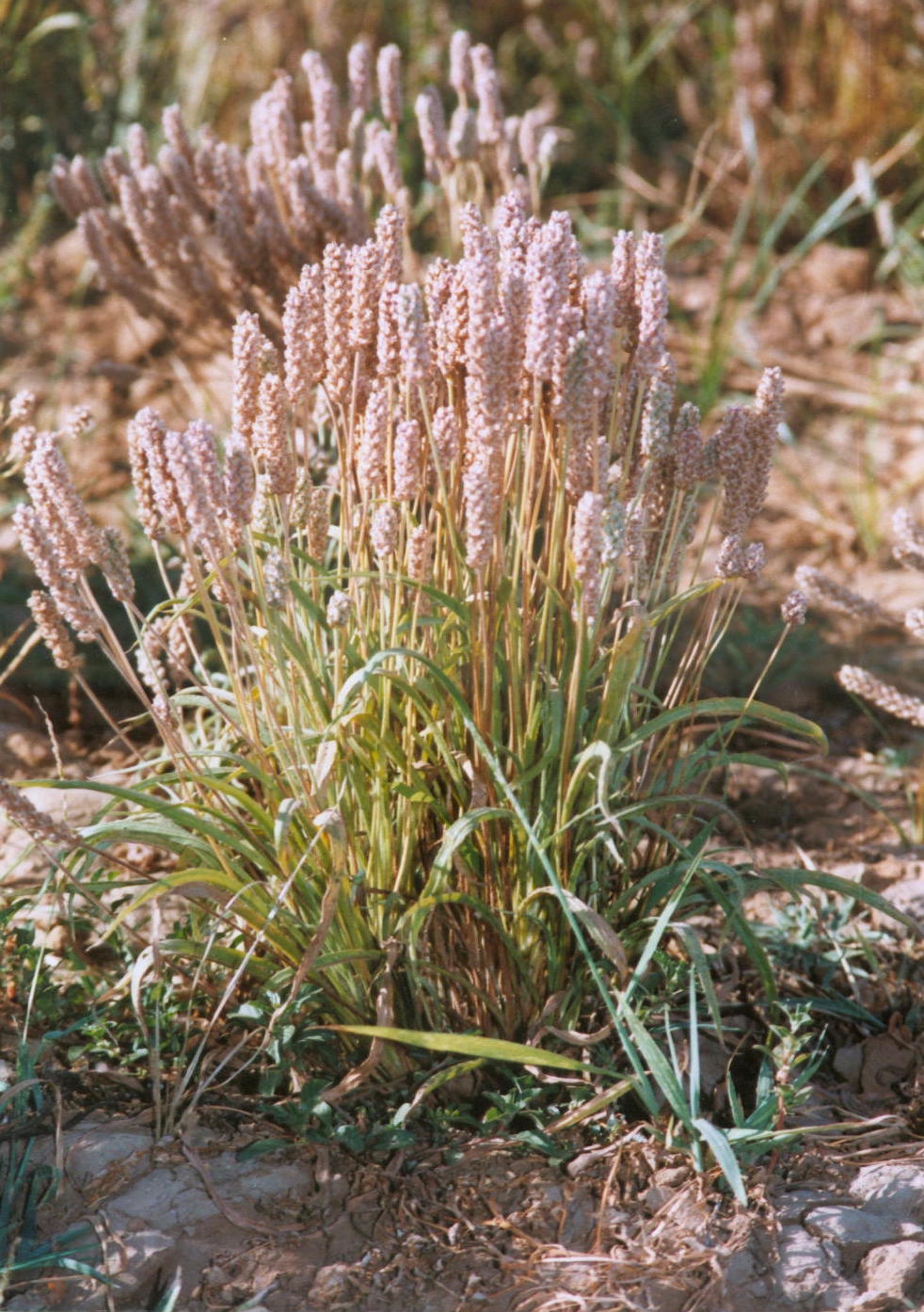
Psyllium – Nature’s Wonder Fibre
Deer Brand Sat Isabgol is a 100% NATURAL , PURE and SAFE high fibre supplement for fibre deficient diet obtained from Isabgol Seeds.
Psyllium, Isabgol or Isphagula (Botanical: Plantago Ovata Forsk) is mainly grown in India was popularised with the advent of Arabians and Persians in India as early as 10th Century A.D. under the popular name of Fleawort or Flea Seed Husk. Its use as a mild bulk laxative spread to the United States and other European countries during middle of 19th century and increased substantially later on and has maintained an important place in therapeutics in spite of the development of many newer synthetic compounds.
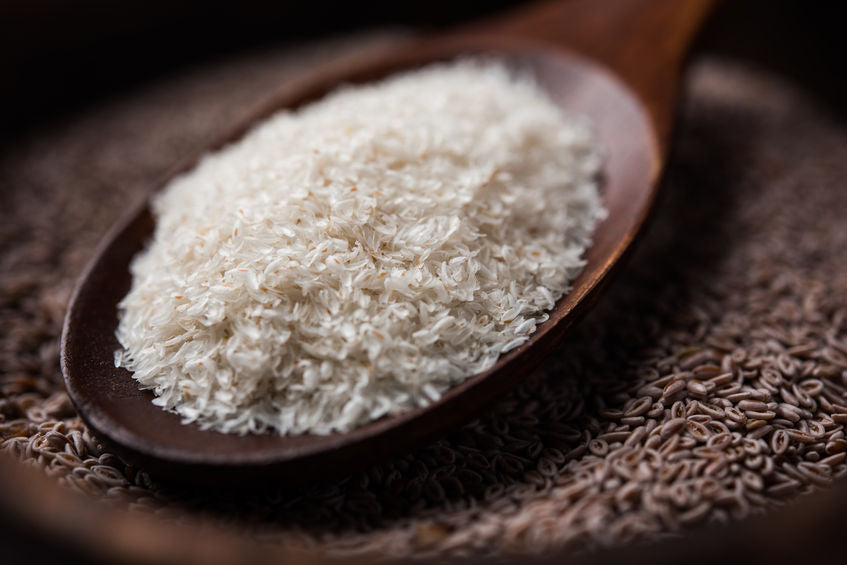
In indigenous medicine Ayurvedic and Unani the seeds and husk are used as emollient, demulcent and laxative and in the treatment of chronic constipation, amoebic and bacillary dysentery and diarrhea.
The efficacy of Psyllium is due to the large quantity of mucilage, the action of which is purely mechanical as the husk swells into a jelly like mass with liquids.
Recent advance research carried out in the United States and elsewhere shows that Psyllium Husks used as a dietary supplement has helped lowering the human serum cholesterol level*.
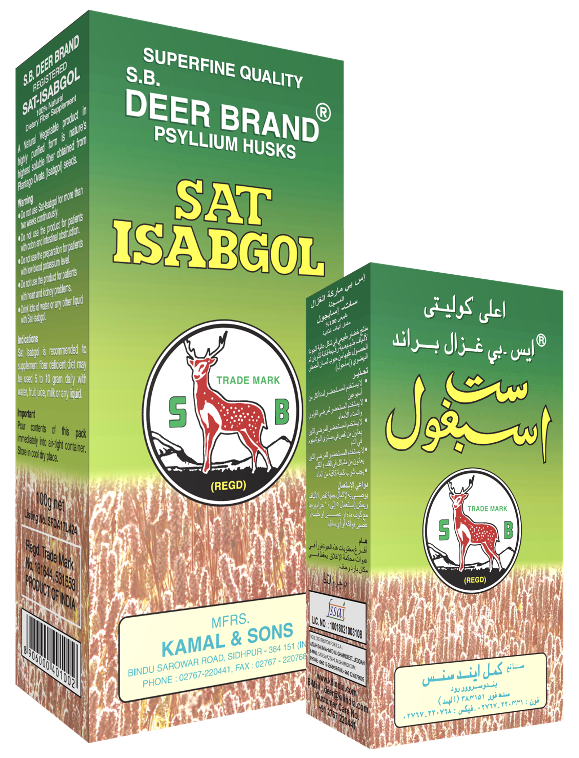
Quality First - DEER BRAND
Deer Brand Sat Isabgol Psyllium Husk is processed in state of the art plant having modern computerized sorting machines under stringent quality control measures. Right from selection of raw materials to computerized cleaning, processing and packaging in hygienic plant, utmost care is taken to bring you 100% Natural and Super Quality Sat Isabgol.
The consumer packs are sealed and packed on fully automatic machines without hand touch in line with international standards. These are available in various sizes of 500gm, 200gm, 100gm, & 50gm packets and in convenient 10gm sachets for the domestic and export markets.
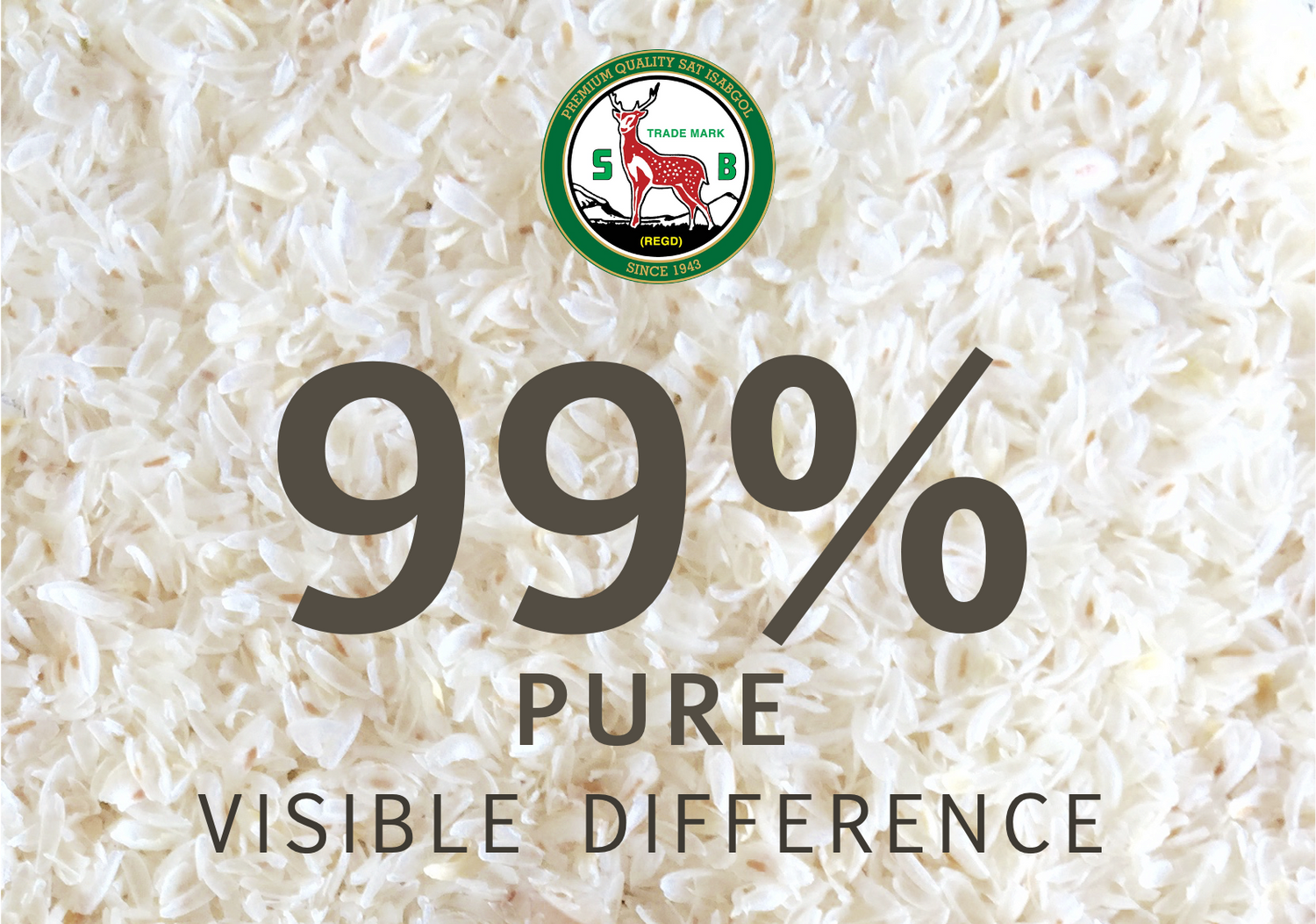
Deer Brand Sat Isabgol® - Pure Psyllium Husk
